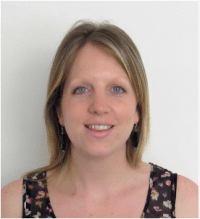Adfam’s conference highlighted the urgent need to understand the impact of alcohol on the whole family, says Joss Gaynor.
Hosting our conference, Hidden Harm 10 years on, gave delegates the opportunity to consider not only the progress that has been made but also the distance we still have to travel to protect and improve the quality of life for children affected by parental substance use. Back in 2003, Hidden harm didn’t address parental alcohol use and its specific impacts, but one strong theme from the presenters and delegates this year was the real and urgent need to improve our understanding of alcohol use on children. Sir Ian Gilmore from the Alcohol Health Alliance urged the audience to start thinking about the idea of ‘passive drinking’ and its potential impact on the children and other family members.
Some could suggest in policy terms that there is a lack of coherence around children, families and alcohol and the alcohol strategy does not offer any clarity or action on how to address this issue. What’s clear is the significant needs of these children. The Office of the Children’s Commissioner report, Silent voices, published last year, identifies that the size of the problem is relatively unknown. However, we do know that there are high levels of parental alcohol use in serious case reviews and children affected often come to the attention of children’s services later and through different pathways than those impacted by parental drug use. Silent voices also goes on to point out that many children are coping with the alcohol use in their families – some of them very well – but this does not equal resilience. Resilience suggests a recovery from the adversity, which is often a far cry from the behaviours and actions children employ to keep themselves safe and cope with alcohol in the family.
One of the other strong themes from the conference was that parental alcohol use rarely sits in isolation and often children are impacted upon by a range of other inter-related issues, including conflict and violence. Delegates suggested that when parental alcohol use and family conflict co-exist that the negative long-term impact on the child could be magnified. It was also felt that the focus of some policy and strategic thinking concentrated on alcohol as a single issue, rather than looking at the cumulative effects of the wider social issues, leading to inadequate management of the family.
One of the differences between parental alcohol and drug use is alcohol’s legal and socially accepted place in society. Our culture of drinking in this country can cause confusion and a reticence to understand and explore what might be harmful to children and their safe family life. Silent voices found that it cannot be assumed that higher levels of consumption equate to greater harm and that some less frequent, episodic binge drinking behaviours can be very impactful on children.
What is clear is that we need to do a lot more research, thinking and development to better understand the needs of children affected by alcohol misuse. Both national and local policy needs to be improved to pay more account of these children and not just those at the high-risk end. Those working in services need to be vigilant to the needs of children who are faced with the harms from parental alcohol misuse.
Joss Gaynor (formerly Smith) is director of policy and regional development at Adfam, www.adfam.org.uk

